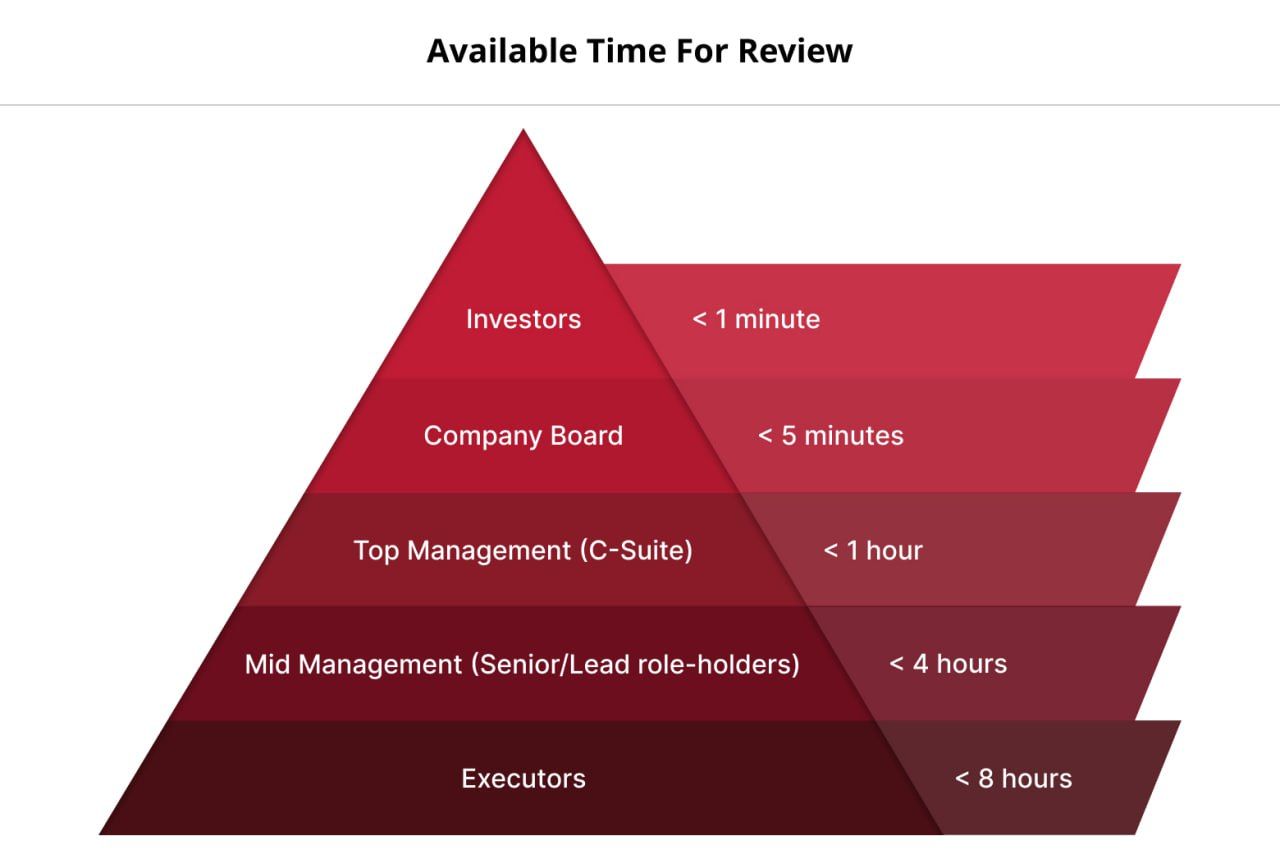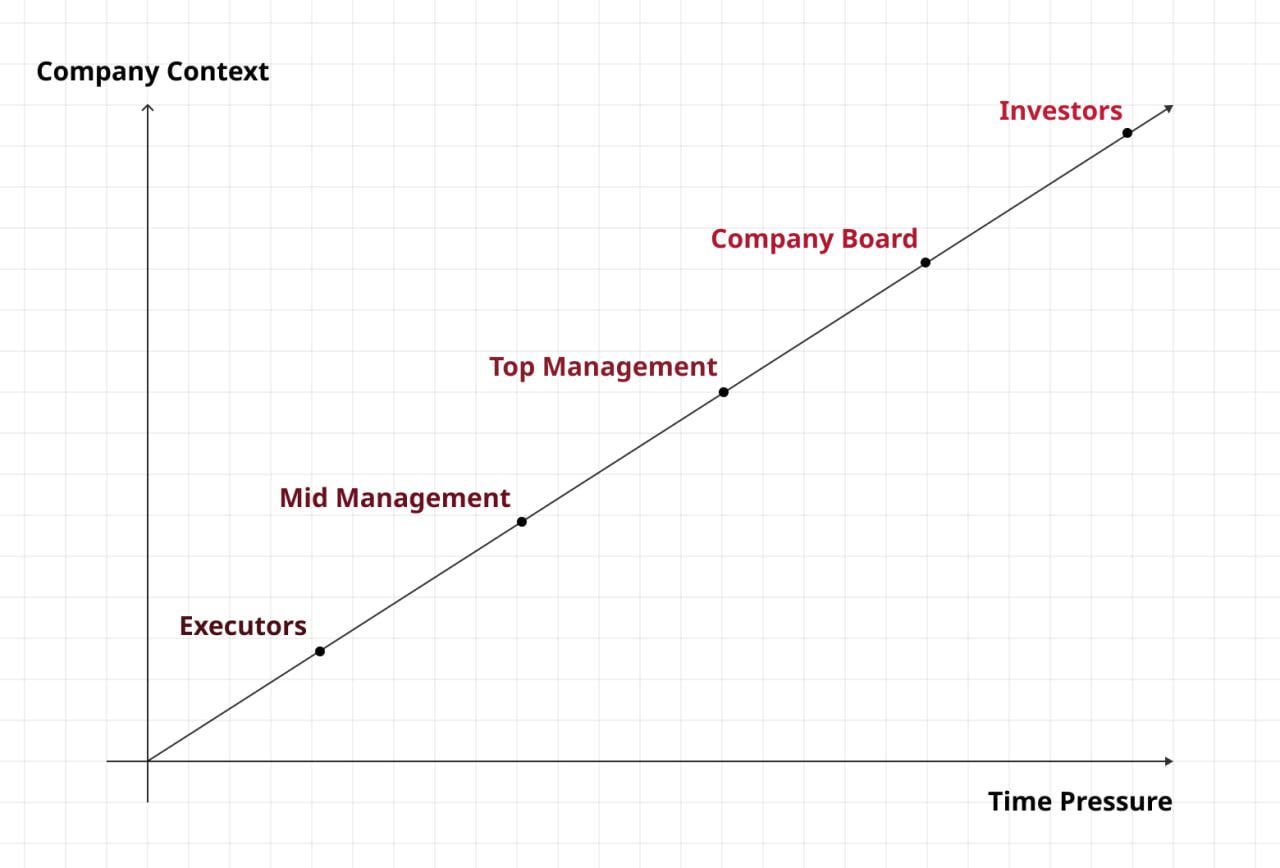Summarize like your job depends on it (Because It Does)
In different settings, we might take on different roles. Still, for most of our lives, most of us are employees reporting to managers.
Whatever is written in our job description, and whatever instructions we receive from our manager, at the core, our job is to reduce complexity - to boil down difficult or messy information into clear, digestible insights for others, depending on their roles.
Even in non-managerial, executor-level roles, there are times when you need to deliver reports, summaries, updates, or quick briefs that clearly communicate the essence of a situation.
Many employees fail to recognize this. As a result, their output often ends up unreadable or unhelpful. Ironically, this issue isn’t limited to junior staff. It’s widespread across the entire hierarchy - from entry-level to senior leadership. This results in documents that are bloated, vague, confusing, and directionless.
Another common drama I’ve seen a lot is when an employee is extremely loyal and hard-working, yet still fail their team or company by neglecting this core responsibility. Poor communication of complexity can actively harm the process. A higher manager might make the wrong decision simply because they missed a key point buried in line 95 of page 12 in a file “important.pdf”.
It’s tempting to say, “Well, the manager missed it - it's their fault.” But in reality, it’s usually a structural failure. Due to context-switching, limited attention spans, and the volume of information they handle, it’s more likely the lower-level contributor failed to do the hard work of summarizing and highlighting what mattered.
In every company, the roles around us naturally form a hierarchy. And each level requires a different format and depth of information. When you produce a piece of work and pass it to a colleague, they’ll usually do one of two things: either post-process and escalate it up the chain, or analyze it and make a decision.
Now here’s the key point - time available to absorb your output drastically shrinks as you move higher up the hierarchy chain.
Lower-level roles (executors) often need more detailed, task-specific instructions. But as you move up (mid-management → top management → board → investors), the content needs to become leaner, sharper, and more focused on clarity, context, and impact.
You might argue that some tasks are huge and require more attention - and you’d be right. But that doesn’t change the fundamental reality: you can’t make an investor sit through a 3-hour deck, or expect the board to read a 20-page memo. Time constraints are always in play, no matter how critical the matter.

Why are these time limits so rigid? Because each level in the hierarchy carries exponentially more context in their heads. They have to juggle more threads, more consequences, and more simultaneous narratives than those below them. That mental load fractures their attention span and leaves very limited time to engage with your output.
So, whether you're reporting to your lead or preparing a brief for the board - your real job is to shape clarity out of complexity. And how well you do that may be the single biggest predictor of your impact inside a company.
Available Company Context VS Time Pressure

Now, let’s say I sold you the idea, and you want to learn how to get better on summarizing. Since I shape this article in a somewhat generic manner, and I don’t know the role of the reader, here are some generic things one can do to get better at summarizing:
- Learn through your research tasks. Whatever you're exploring, begin with a rough diagram to map the space, then narrow it into a focused structure, and finalize it as a one-pager PDF (or as few pages as possible).
Your goal is to highlight the most critical points relevant to the business. Emphasize urgency (how time-sensitive the opportunity is) and projected cost/effort. For example, in a software company, a summary might look like:
“Competitor ABC has Feature X. If we add it to our product Y, we expect a growth in user base by <...>. Can be implemented in 2 weeks under current load of dev team, or within a month if delayed.”
That’s the ideal research outcome: every word precise, every sentence essential.
Such exercise will let you boost your skill of working with semantics, and it won’t take long for you to see the significance of this practice. - Learn to summarize by pitching a complex topic in the simplest way possible - ideally in under a minute when explaining it to a colleague. Pay close attention to the clarification questions they ask. Use those questions to identify gaps in your explanation and refine your storytelling around them.
- Before summarizing, jot down the narrative you want to follow. How will you introduce the idea? Why does it matter? And most importantly, why do you believe it deserves attention in the first place?
As you go through this process, you might realize that some of your research or ideas aren't worth sharing after all. But the opposite can also happen - you may uncover something valuable, strengthen your case, and decide it's worth doubling down on.
P.S. Even the clearest, most to-the-point document won’t get through an idiot. If that’s the case, you’ll either learn something new about your manager or realize it’s time to find a better place to use your skills <3
Thanks, and good luck!
Wolf Alexanyan

